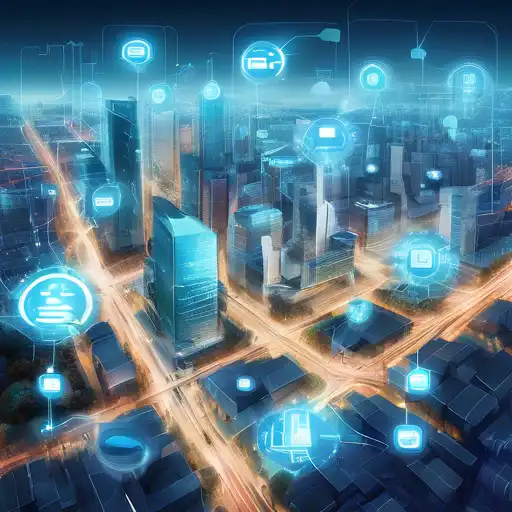Introduction to IoT in Smart Cities
The Internet of Things (IoT) is revolutionizing the way urban areas operate, making cities smarter, more efficient, and more sustainable. By connecting devices, vehicles, and infrastructure to the internet, IoT enables real-time data collection and analysis, leading to improved decision-making and enhanced quality of life for residents.
Key Benefits of IoT in Smart Cities
IoT technology offers numerous advantages for smart cities, including:
- Improved Traffic Management: IoT sensors can monitor traffic flow in real time, reducing congestion and improving road safety.
- Energy Efficiency: Smart grids and IoT-enabled devices help optimize energy use, lowering costs and reducing environmental impact.
- Enhanced Public Safety: From surveillance cameras to emergency response systems, IoT plays a crucial role in keeping cities safe.
- Waste Management: Smart bins and IoT systems can optimize waste collection routes, making cities cleaner and more sustainable.
Challenges and Solutions
Despite its benefits, implementing IoT in smart cities comes with challenges such as data security and privacy concerns. However, with advanced encryption and strict data governance policies, these issues can be effectively managed.
Future Prospects
The future of IoT in smart cities is bright, with advancements in AI and machine learning further enhancing its capabilities. As technology evolves, we can expect even greater efficiencies and innovations in urban living.
Conclusion
IoT is at the heart of the smart city revolution, offering solutions to some of the most pressing urban challenges. By embracing IoT, cities can become more livable, sustainable, and efficient for all residents.
For more insights into how technology is shaping our future, explore our technology trends section.
